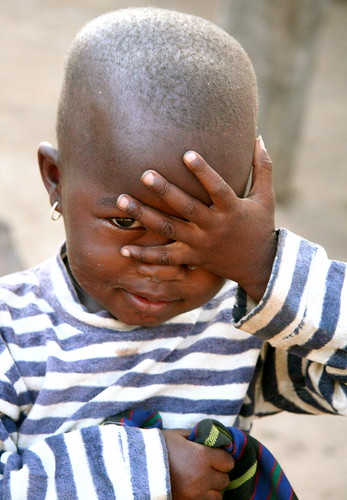Minority identity formation is as much a process of defining what someone is as it is what someone is not. In this understanding of identity creation, the person defining whom she is focuses more on naming those things she
is rather those things she
is not. For example, the person might say, "I am Muslim, I am from this place and thus have a home in this culture, I value this and I value that." Therefore, the person probably will not say because I am this, thus "I am not Buddhist, I do not feel particularly at home in this culture, etc." And while the process of internal dialogue goes on, the person gives value to the many facets that make up the
individual's composite identity, which are manifest outwardly as multiple components including behavior, publicly articulated opinions and ideas, clothing and appearance. As separate as they may be — as different as the tongue's utterances are from the clothes covering one's limbs — they all
emanate from one composite self that moves through society as one particular entity that is not easily deconstructed into the many parts making her up.
This process of self-knowledge and self-realization is a very intimate discourse that involves the three components of the self — the body, the intellect
and the soul — each faculty connected with the other in an intricate web of emotion, rationalization and spiritual insight. Each faculty is directly connected to the three dimensions of human existence — the horizontal (society), the vertical (Prophetic compass) and depth (spiritual ascent that is free of particular temporal limit). Each faculty, however, draws energy and the ability to operate not from itself, but from the source of all creation — God Most High — who fashioned each person and her corresponding components.
The above, however, is focused on intense internal keenness because it is the part of identity formation that deals with expounding upon what one
is. And as was said before, typically, identity formation does not directly speak to what one
is not although the process in itself establishes both what one is and what one is not. Therefore, many times, if one does not establish what one is not to others because it doesn't come up in conversations and is not manifest
explicitly in appearance or that what someone is not doesn't necessarily mean she does not tolerate it, others might fill this vacuum of establishing what one is not or
doesn't tolerate by externally imposing negative ideas and values created by the media or ignorant individuals that are anathema or antithetical to the dominant culture. This can
lead to a creation of otherness because the external imposition is a dropping of heavy cultural, social and political baggage on the person going through the identity formation process.
As one says, "I am Muslim," another person might add without the permission of the person going through identity formation that because she defines herself as "Muslim" she is therefore not open-minded, liberal, thoughtful, American and so on. This leads some people to demand that Muslims "prove" themselves be it in terms of patriotism, comfort with dominant cultural norms and a "moderate" politically and religiously. If the person is not able to publicly "prove" herself, an
unacknowledged otherness is attached to the person because people outside of this intense internal discourse are not privy to the internal conversations going on about what the person
is and therefore don't know what the person feels or thinks. This might create false labels and understandings of the person and attach them to her unwittingly therefore creating a dissonance in how society at-large views a person and how the individual views herself.





